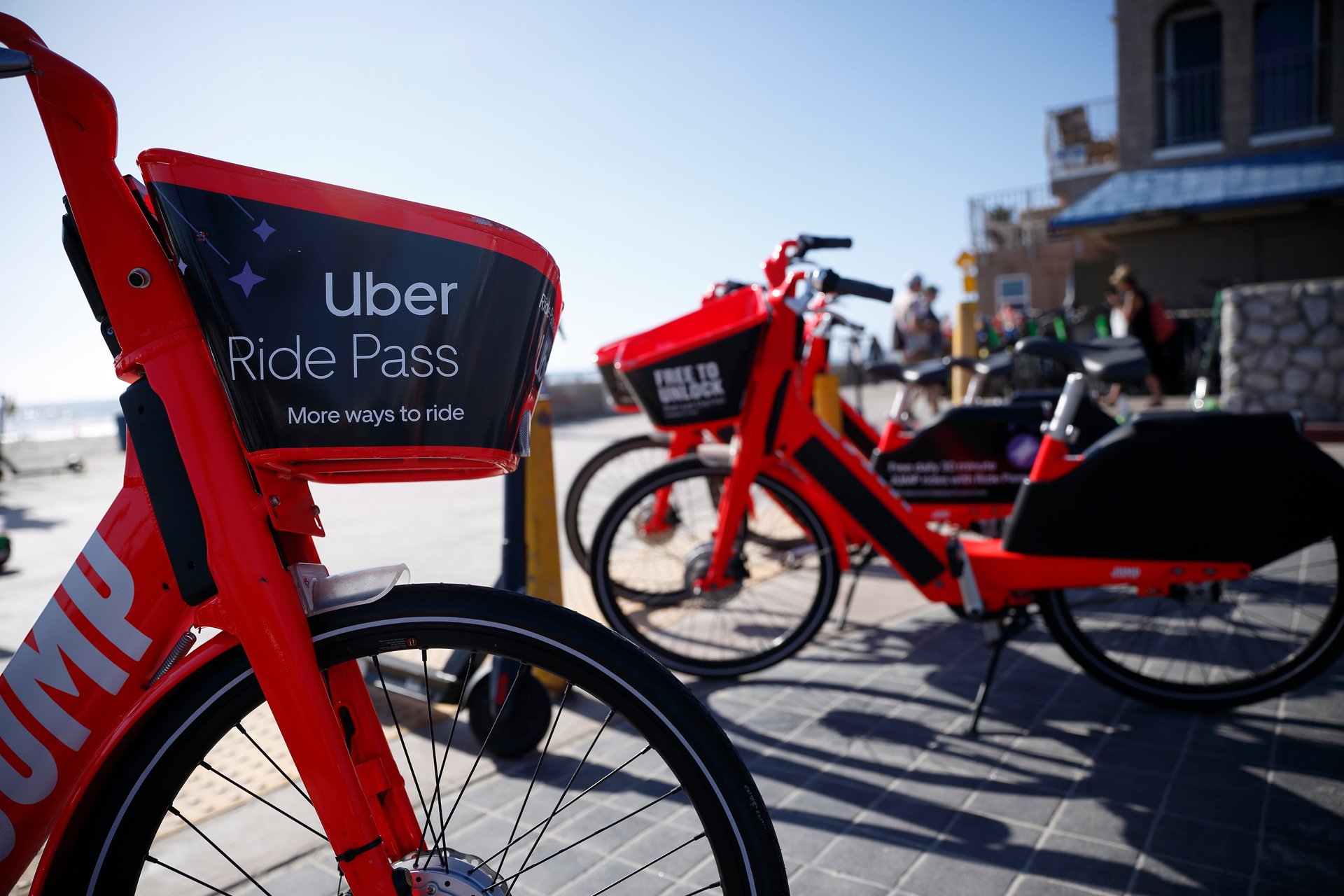Lyft doesn’t seem to care that much about ending car ownership
Lyft, a $17 billion public ride-hailing company, talks a lot about ending car ownership. In November 2015, co-founder John Zimmer declared the end of car ownership at an auto conference in Los Angeles. “Simply put, owning a car today is not enjoyable,” he said.


Lyft, a $17 billion public ride-hailing company, talks a lot about ending car ownership. In November 2015, co-founder John Zimmer declared the end of car ownership at an auto conference in Los Angeles. “Simply put, owning a car today is not enjoyable,” he said.
In its 2018 economic report, Lyft said 35% of its US users didn’t own or lease a personal vehicle, adding that 64% of that subset said Lyft factored into their decision to forgo one. Lyft has invested in shared rides and carbon-neutral transit, via carbon offset purchases. In July 2018, it rolled out a small program that paid residents to ditch their personal cars for a month. Also in July 2018, Lyft expanded from shared car rides to shared bikes and scooters with its purchase of Motivate, America’s largest bike-share operator.
But idealism only goes so far when money is at stake, and Lyft seems less committed to taking cars off the road than profiting from that shift.
Lyft last week sued the city of San Francisco to block any competitors from operating local bike-share programs—never mind that more shared bikes could lead to fewer cars on the road. The complaint, filed in California Superior Court in San Francisco, demands the city not violate a 10-year contract it signed in 2015 that made Motivate the exclusive provider of shared bikes in the Bay Area. Motivate operates San Francisco’s docked bike-share program, Ford GoBike, and similar programs in other major US cities, such as Citi Bike in New York City and Capital Bikeshare in Washington DC.
Lyft filed the lawsuit shortly after San Francisco announced it was seeking applications for companies to operate stationless or “dockless” bike-share programs, building on the popularity of Ford GoBike, to “make bike share accessible for even more riders in San Francisco.” The city acknowledged in its request that Lyft had an exclusive contract to provide the Bay Area’s roughly 165 bike-share stations, but said dockless bikes would complement the GoBike program. City transit officials have proposed quadrupling the number of shared bikes in the city, to 10,000 or 11,000, and said they’ll announce new permits by July.
On June 11, Lyft unveiled a new dockless electric bike in San Jose. The company said those bikes would join its fleets in San Francisco and the East Bay in the coming weeks. Lyft also renamed its Ford GoBikes program to “Bay Wheels.”
Despite Lyft’s stated belief that cities should be built for people, not cars, and professed commitment to social responsibility, Lyft is first and foremost a business, and protecting a business sometimes has to take precedence over beliefs and social responsibility. The company now claims the exclusive bike-share rights it obtained through Motivate applies to “all types of bicycles, including, but not limited to, traditional pedal bikes, e-assist, electric assisted or electric bikes…, stationed or docked bikes, and/or stationless or dockless bikes.” Basically, anything to do with bicycles that could be a competitive threat.
“We are deeply committed to ending car ownership, and our continued investment in bikeshare is only more evidence of that commitment,” Lyft spokesperson Julie Wood told Quartz. ”We are eager to quickly resolve this contract dispute, so that we can deliver on our plans to bring bikes to every neighborhood in San Francisco and get more people out of cars and onto bikes.”
John Coté, a spokesman for the San Francisco city attorney’s office, said in an email that the Motivate contract was about a docked bike share system, and “does not give Lyft the right to a monopoly on bike sharing in San Francisco.”
A company suing to protect its business at the expense of corporate values is hardly shocking, but it’s notable as Lyft could use its Motivate contracts to stymie bike-share expansion in other major US cities. The company’s contracts include a nine-year deal in Chicago (over the objections of Uber), a deal with New York City through 2029, and a five-year agreement with Minneapolis, to name a few. At a time when many cities are exploring non-car ways to build out their public transit, Lyft could nip shared bike initiatives in the bud.
Lyft has already proven litigious. It sued New York City earlier this year over rules designed to raise driver pay and now has sued San Francisco over its bike-share agreement. It’s not a stretch to imagine it continuing that strategy if its bike-share contracts come under threat in other cities. That may be prudent business, but it’s far from socially responsible or in good faith for a company that talks such a big game about taking cars off the road.
Update (June 11): This story was updated to include details on a dockless electric bike share Lyft announced in San Jose on June 11.